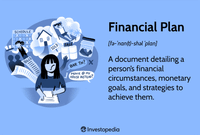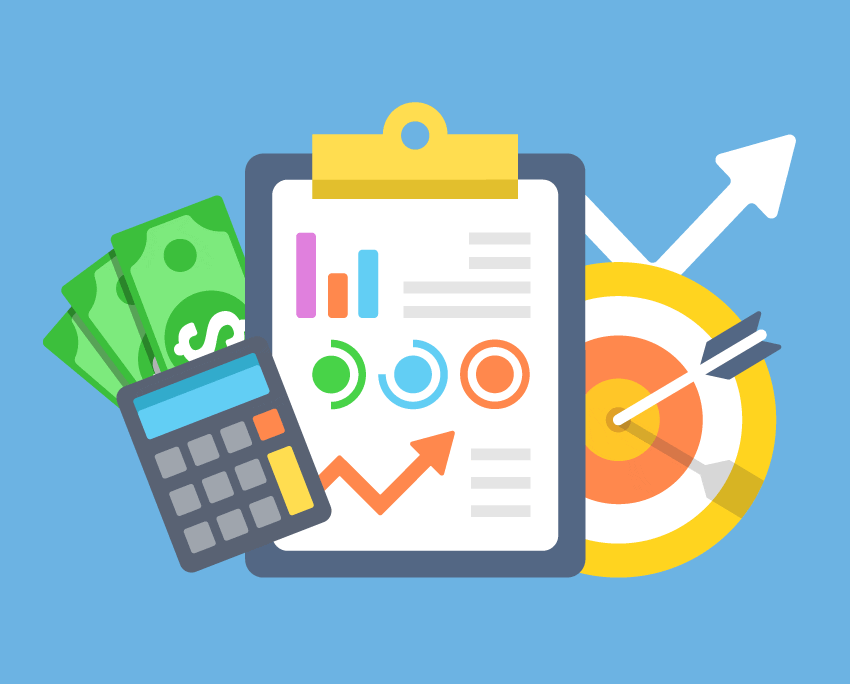Durchsuchen Sie die Webergebnisse zu dieser Domain.

The best budgeting tool is one you'll use regularly to track expenses and plan for future spending. Not everyone relishes the idea of proactively managing their money. However, creating a budget – and sticking to it – are key first steps toward reaching financial goals large and small.
American Consumer Credit Counseling, a nonprofit credit counseling provider, has sheets for household budgeting, expense tracking and budgeting for specific needs. Meanwhile, Regions Bank has free worksheets anyone can download from its Next Step Financial Education website, including a personal spending plan worksheet and daily spending tracker.Having the right tools is essential to tracking expenses and monitoring income but you don’t need expensive software to accomplish that.Be generous with holiday tips if you can, experts say, but don't stray from your budget. Maryalene LaPonsieDec. 10, 2024 · Focus on creating an experience for your holiday gathering, which can control costs. Aja McClanahanDec. 10, 2024 · Using artificial intelligence can relieve gifting stress while helping you save time and money. Erica SandbergDec. 9, 2024 · While sustainable items can cost more, with planning and commitment you can shop according to your budget without compromising value systems.“There are many different budgeting methods and what we find is that different types of budgets work best for different personality types,” says Kendall Meade, a certified financial planner with SoFi.
Northwestern Mutual: Budgeting and financial planning are both critical elements to a healthy financial life. But despite their differences, many ...
NEW YORK, November 23, 2021 (Newswire.com) - Northwestern Mutual: Budgeting and financial planning are both critical elements to a healthy financial life. But despite their differences, many people use the terms interchangeably.Short-Term vs. Long-Term Planning · Budgeting is a small facet of financial planning that focuses on the short term by giving insight into and control over money. And abiding by a budget often sets people on the right path for short-term financial success.A well-thought-out budget can also help prioritize spending, which can help people make sure their money is going to what's important to them — now and in the future. Financial planning is larger in scope and consists of all aspects of personal finance, including saving, spending, investing, and more.Financial plans are typically created and then revisited annually, whereas budgets are often done monthly. That's because financial planning is focused on the larger financial picture, which may not change as frequently as expenses do month-to-month.

What is a budget? A budget is a plan for every dollar you have. Using your take-home pay as a starting point, a budget organizes your expenses, savings goals and other financial obligations into a manageable system that can provide more financial freedom and a less stressful life.
Step 1. Figure out your after-tax income Step 2. Choose a budgeting system Step 3. Track your progress Step 4. Automate your savings Step 5. Practice budget managementIf you find that the initial budgeting system you choose isn’t working for you, consider trying a different strategy. The budget you choose doesn’t have to last forever. ... NerdWallet Planning powered by Quinn can help you build a personalized plan to get rid of debt, save more of your paycheck, and invest in your future.If there's no money for fun, you'll be less likely to stick with your budget. Use 20% of your after-tax income to put something away for the unexpected, save for the future and pay off debt balances (paying more than minimums). Make sure you think of the bigger financial picture; that may mean two-stepping between savings and debt repayment to accomplish your most pressing goals.Planning and strategyPlanning and strategyBest investments right nowEstate planningFinancial planning · Investing and retirement calculatorsRetirement calculator401(k) calculatorRoth IRA calculatorInvestment return calculatorSocial Security benefits calculator Small business ... Funding your businessSmall-business loansSBA loansBusiness lines of creditBusiness grantsStartup business loans · Managing business financesBusiness bank accountsBusiness credit cardsAccountingPayroll & HRBusiness taxes

In this article, we offer practical tips for creating and maintaining a budget that suits your household's needs. A budget is a plan that helps you manage your money. It shows how much money goes in and out of your pocket each month, and helps you identify areas where you can save ...
In times of financial uncertainty, careful budgeting can be critical to keep your money in order. In this article, we offer practical tips for creating and maintaining a budget that suits your household's needs. A budget is a plan that helps you manage your money. It shows how much money goes in and out of your pocket each month, and helps you identify areas where you can save money.Understand your income and expenses: The first step in creating a budget is identifying how much you earn and spend each month, as well as any extra income and expenses. Know how to track these numbers with help from the Consumer Financial Protection Bureau. Set clear financial goals: Whether it's saving for your children's education, buying a home, or planning for retirement, setting financial goals helps you stay focused and motivated.Use helpful tips from the Federal Trade Commission (FTC) to set and achieve your financial goals. Prioritize your expenses: Not all expenses are equally important. Prioritize spending on your basic needs, such as housing, food, and healthcare. Evaluate which expenses, such as eating out or subscriptions, you can reduce. Learn how to prioritize your expenses. Plan for the unexpected: An essential part of any budget involves considering unexpected expenses.Explore Department of Labor’s practical tools to develop a savings plan and build an emergency fund. Monitor your spending habits: Use tools like the Consumer Financial Protection Bureau's bill calendar to keep track of when you make payments and how much you pay for each item. This will help you avoid late fees and improve your credit. Review and adjust your budget regularly: The state of the economy and your personal finances can change from time to time.


For example, to save more, consider cutting back on dining out or entertainment expenses. Or, if you already have an established financial routine, pinpoint an aspect to prioritize. For instance, if you’re budgeting, you might prioritize allocating a larger portion toward debt repayment or emergency savings. As you make plans...
For example, to save more, consider cutting back on dining out or entertainment expenses. Or, if you already have an established financial routine, pinpoint an aspect to prioritize. For instance, if you’re budgeting, you might prioritize allocating a larger portion toward debt repayment or emergency savings. As you make plans, make sure to stick with at least minimum payments on any debts you have.Varied finance and accounting work includes the preparation of financial statements and budgets, the development of multiyear financial forecasts, credit analyses, and the evaluation of capital budgeting proposals. In a consulting capacity, he has assisted individuals and businesses of all sizes with accounting, financial planning and investing matters; lent his financial expertise to a few well-known websites; and tutored students via a few virtual forums.Understanding the difference can go a long way toward improving your long-term financial health. Whether you’re putting together a budget for the first time or making plans for your future, drawing a clear line between wants and needs will help you achieve your goals.Next, assess whether paying for a product or service would compromise essential needs like housing, utilities or health care. Make sure the purchase fits comfortably within your budget and look for alternatives that might cost less. Finally, consider how the item or experience fits into your overall financial plan.

Stay on top of your finances in under 5 minutes per week. Check your custom budgeting plan — anytime, anywhere! ... See where your money is going and discover places to save.
Some of our other top picks have both online and mobile platforms for more convenience. If you want a shared budgeting plan on both computer and mobile, some joint bank accounts come with budgeting features. ... Monarch Money may be worthwhile if you are looking for a budgeting app that helps you save for financial goals and create a budget.It's a great option if you don't want to pay a fee. It also allows you to have individual and shared finances. ... Monarch Money is an overall solid option if you prioritize creating monthly budgets and saving for individual savings goals. The main downside of the app is that it doesn't offer a free plan.Rocket Money has a free plan that's $0. The Premium plan has a 7-day free trial; after the free trial, you'll have to pay around $6 to $12 per month (the lower-price plans are billed annually instead of monthly). ... Honeydue is a budgeting app designed specifically for couples and it's also a free budgeting app. The sign-up process is short and simple — you'll create an account by setting up your email, then invite your partner to Honeydue. Honeydue allows you to see both your individual and shared finances in one place.Several budgeting apps also provide reports for broader areas of your finances. For example, you might be able to view your cash flow balance over several months or how your money in your retirement plans has grown over time.
Most people need some way of seeing ... of your finances and make it easier to save money for your goals. The trick is to figure out a way to track your finances that works for you. The following steps can help you create a budget plan....
Most people need some way of seeing where their money is going each month. Budgeting can help you feel more in control of your finances and make it easier to save money for your goals. The trick is to figure out a way to track your finances that works for you. The following steps can help you create a budget plan.Creating a personal budget is the key to gaining control of your money. Follow these simple steps from Better Money Habits to begin creating your individual budget.This is a good starting point for putting your plan into action. How it works: First, break down your fixed and variable expenses into things you need to have and things you want to have. For instance, if you drive to work every day, gasoline counts as a need. A monthly music subscription, however, may count as a want. This difference becomes important when you’re looking for ways to save money to reach your financial goals.Bank of America clients can access the Spending & Budgeting tool in Online and Mobile Banking to automatically categorize transactions for easier budgeting. ... Before you start sifting through the information you’ve tracked, make a list of your short- and long-term financial goals.

Budgeting focuses on maintaining or eliminating certain spending habits. This may include something like spending less money on entertainment or putting more money into your savings account each month. Financial planning focuses on reaching longer-term financial goals, such as paying off debt ...
If you're interested in budgeting or financial planning, learning more about how these processes work can help you achieve your short- and long-term financial goals.In this article, we discuss what budgeting and financial planning are and the key differences between them, and we provide tips on how to use each process.If you choose to use your budget to reduce unwanted expenses, you can use any surplus money to work toward accomplishing short- or long-term financial goals. To create your budget, many people use a planner, pen and paper or a spreadsheet on a computer.Related: 8 Budgeting Methods To Help You Reach Your Financial GoalsFinancial planning can help you because it allows you to set measurable targets you can reach, and it guides you on how to use your money when you make important financial decisions.Related: 6 Types of Financial Careers (Plus Job Profiles and Salary) Although budgeting and financial planning are methods that help you accomplish financial goals, they have some important differences, including:Budgeting focuses on maintaining or eliminating certain spending habits. This may include something like spending less money on entertainment or putting more money into your savings account each month. Financial planning focuses on reaching longer-term financial goals, such as paying off debt or buying a house.Related: Effective Goal Setting: 7-Step Process for Success


Take the headache out of money management with these top budgeting apps.
Take the headache out of money management with these top budgeting apps. ... Liliana Hall is a writer for CNET Money covering banking, credit cards and mortgages. Previously, she wrote about personal credit for Bankrate and CreditCards.com. She is passionate about providing accessible content to enhance financial literacy.She has over 10 years of experience in personal finance and previously wrote for CBS MoneyWatch covering banking, investing, insurance and home equity products. She is passionate about arming consumers with the tools they need to take control of their financial lives.Courtney Johnston is a senior editor leading the CNET Money team. Passionate about financial literacy and inclusion, she has a decade of experience as a freelance journalist covering policy, financial news, real estate and investing. A New Jersey native, she graduated with an M.A.Previously, she wrote about personal credit for Bankrate and CreditCards.com. She is passionate about providing accessible content to enhance financial literacy. She graduated from the University of Texas at Austin with a bachelor's degree in journalism, and has worked in the newsrooms of KUT and the Austin Chronicle.

Gain a comprehensive understanding of personal finance and planning, including budgeting, saving, and investing.
Budget lays out in detail the amount of money an individual has in hand or will get/earn over the lifetime of the Budget, how these funds will be spent,and how much would be saved. It’s better to categorize expenses into i) fixed – expense items that cannot be avoided, and ii) variable – expense items that could be avoided or delayed. While credit options allow you to live a certain quality of life instantly, these can adversely impact your financial stability in the near and long term.This involves looking at your savings and managing the budget, among others. This will help keep your affairs under control and allow you to make changes in certain spending habits. As you learn more about financial planning, you will be able to explore more avenues for wealth-creation and make better decisions regarding various aspects of your portfolio.Investing is an imperative aspect of your financial journey. The power of compounding does the magic here. You can start small and increase the contribution to your investment kitty as your income grows over the years. Usually, people tend to spend first and invest whatever amount is left at the end of the month. That’s not a great idea. Do the reverse. Based on the average expenses, it’s better to determine a fixed amount that can be saved and invested every month.The best way to see money grow is by executing a proper financial plan. Financial planning should be holistic in approach. The process should start off by evaluating the financial situation, and go on to identify the goals, and finally to implement the financial plan to achieve the goals.

You can’t plan ahead for your next paycheck, for example. Who It’s Best For YNAB is best for people who want to proactively manage their finances and budget every paycheck. This app isn’t optimized for passive budgeting or irregular use. ... YNAB, short for You Need A Budget, is an award-winning budgeting program that specializes in helping consumers save ...
You can’t plan ahead for your next paycheck, for example. Who It’s Best For YNAB is best for people who want to proactively manage their finances and budget every paycheck. This app isn’t optimized for passive budgeting or irregular use. ... YNAB, short for You Need A Budget, is an award-winning budgeting program that specializes in helping consumers save money and get out of debt.We chose Quicken Simplifi as the best app for managing household finances because it makes tracking bills, savings goals and cash flow easy. Plus, you can add multiple people to your budget, including your partner or financial planner.CountAbout is our top pick for sole proprietors because it has bookkeeping, accounting and budgeting features to help you manage your personal and business finances in one place. Why We Like It CountAbout is the only budgeting app on our list with built-in invoicing and receipt-capturing features. Plus, you can create customizable budgets and reports for accounting purposes. All plans come with a 45-day free trial, one of the longest trial periods on our list.All of these tools give detailed insights into your current financial picture while helping you plan for the future. Getting started with the app is simple: All users need to do is link bank accounts, credit cards, student loans, mortgages and other line items from their budget.
A budget uses information about what you spent last month to make a plan about what you'll spend this month. Having a budget keeps your spending in check and makes sure that your savings are on track for the future. Budgeting can help you set long-term financial goals, keep you from overspending, ...
Suzanne is a content marketer, writer, and fact-checker. She holds a Bachelor of Science in Finance degree from Bridgewater State University and helps develop content strategies. ... Saving vs. Investing: What Teens Should Know ... Credit Cards vs. Debit Cards ... A budget is a spending plan.A budget uses information about what you spent last month to make a plan about what you'll spend this month. Having a budget keeps your spending in check and makes sure that your savings are on track for the future. Budgeting can help you set long-term financial goals, keep you from overspending, help shut down risky spending habits, and more.A budget can also set you on the right path to achieving your financial goals, spending within your means, saving for retirement, building an emergency fund, and analyzing your spending habits. A budget is a personal spending plan that takes into account expected income and expenses for a specified period of time.Budgeting is a critical financial skill that is important for everyone, regardless of their level of financial knowledge. Learn how to budget, and the reasons why you should budget.
:max_bytes(150000):strip_icc()/GettyImages-1337933770-3d431c51f6e942d4b12280a8f1bfbefe-a3b94cde57b7418aad8cfc4e0b505621.jpg)
Budgeting helps you manage your money on a regular basis so you can spend money stress-free, knowing you've planned for it. Financial planning, on the other hand, is a broader look at your entire financial picture over time. It can show you how and where you’ll save money to reach your goals ...
Budgeting helps you manage your money on a regular basis so you can spend money stress-free, knowing you've planned for it. Financial planning, on the other hand, is a broader look at your entire financial picture over time. It can show you how and where you’ll save money to reach your goals and can help you stay on track if something unexpected happens.Learn how budgeting differs from financial planning, whether you should do your budget or financial plan first, and how to get budgeting and planning help.Financial planning can mean different things to different people. Is it as simple as knowing how much of your money is coming in versus going out? That’s an important element of financial planning — but that’s really just budgeting.A financial plan (and a budget really) depends on one key component to make it work: income. And there’s a lot that can throw that income out of whack — anything from a large, unexpected expense, to being out of work for an extended period of time.


Financial plans aren't one-size-fits-all but the good ones tend to focus on the same things. You can explore your financial goals and ways to achieve them after you've calculated your net worth and spending habits. This usually involves some form of budgeting, saving, and investing each month.
A financial plan is a document detailing a person’s current money situation and long-term monetary goals as well as strategies to achieve an investment plan.You can certainly build a financial plan but a financial pro can help ensure that your plan covers all the essentials. Start setting aside money in a liquid account based on what your cash flow allows. Your goal should be to save enough to cover all your expenses for three to six months at a minimum but preferably for longer in case you find yourself without income due to unexpected events.Some circumstances can call for the creation and use of a financial plan, however. They can also serve as signals to adjust existing plans. A new job that results in added income, new expenses, or new opportunities · An income change that can affect your ability to pay expenses, pay off debt, or saveAriel Courage is an experienced editor, researcher, and former fact-checker. She has performed editing and fact-checking work for several leading finance publications, including The Motley Fool and Passport to Wall Street. ... An investment plan starts with a financial plan.

By planning for seasonal or periodic expenses, we can eliminate the need to use credit or money that was meant for something else. Consider opening a separate savings account specifically for irregular expenses and set aside money every pay period into this account for your irregular expenses. This will help you be proactive instead of reactive. Most financial institutions offer online automated banking options that can help make budgeting ...
By planning for seasonal or periodic expenses, we can eliminate the need to use credit or money that was meant for something else. Consider opening a separate savings account specifically for irregular expenses and set aside money every pay period into this account for your irregular expenses. This will help you be proactive instead of reactive. Most financial institutions offer online automated banking options that can help make budgeting and saving automatic.In celebration of the 10th anniversary of Financial Literacy Month in Canada, here are 10 top budgeting tips to help you manage your money and debt better.Sharing our best budgeting tips is a great way to celebrate the 10th anniversary of Financial Literacy Month in Canada! It’s easier to manage your money when you spend according to your budget. And if you’re dealing with debt, your budget is your best friend to get your finances back on track.You could add it to savings like retirement or emergency funds, make an additional credit card payment, or give yourself an increase in your discretionary spending, AKA “fun money”! The great thing about your budget is that you get to choose what you do with your cash. Write down your financial goals and review them when there are changes to your situation, such as when your income goes down, when it goes up, or when a debt gets paid off.

Leverage these budget templates to better manage your finances ! I found that having a structured way to track my income and expenses allowed me to see patterns, plan for future costs, and ultimately gain control over my finances.
As a result, I’ve been able to better plan for my future, so templates for budgeting are extremely important. So, what are the best budget templates out there? Here are my top picks for spreadsheets: Clever Girl Finance offers a fantastic free budget template in both printable and digital formats.Check out these 10 best budget templates to streamline your finances! Learn how these tools can help you manage your money more effectively.Click here to download this free budget tracking template (and more)! From there, you can start working on building your budget today! Be sure to pick up a copy of the book, Clever Girl Finance: Ditch Debt, Save Money, and Build Real Wealth and the rest of the Clever Girl Finance book series!On the other hand, budgeting apps provide automation and real-time tracking of your finances. These apps can sync with your bank accounts, automatically categorize your expenses, and send notifications to keep you informed about your spending. This can save you time and reduce the need for manual data entry.
Your budget should show what your ... that occur regularly but not every month, such as car maintenance. Include a savings category in your budget and aim to save an amount that feels comfortable to you....
Your budget should show what your expenses are relative to your income, so that you can plan your spending and limit overspending. Be sure to factor in expenses that occur regularly but not every month, such as car maintenance. Include a savings category in your budget and aim to save an amount that feels comfortable to you.It helps you anticipate potential obstacles and then plan specific actions to address them. Here’s how put one together. Set a small, achievable short-term goal for something that’s fun and goes beyond your monthly budget, such as a new smartphone or holiday gifts. Reaching smaller goals—and enjoying the reward you’ve saved for—can give you a psychological boost, making the payoff of saving more immediate and reinforcing the habit.For example, a common budgeting question is whether to pay down debt, save or invest. This interactive tool can help you decide. Or let’s say you know you’re going to need to replace your car in the near future. You could start putting away money for a new vehicle now. Just be sure to incorporate long-term goals, too. It’s important that planning for retirement doesn’t take a back seat to shorter-term needs.Review your budget and check your progress every month. That will help you not only stick to your personal savings plan, but also identify and fix problems quickly. Understanding how to save money may even inspire you to find more ways to save and hit your goals faster.

They are things like paying off ... plan. Consider sticking to these 11 goals to help relieve yourself from financial difficulties. You can set the greatest goals possible, but it’s pointless if it’s not grounded in reality. Listing your expenses and income gives you a clear grasp of what you have to work with. A credit counselor can show you how to create a budget and come up ...
They are things like paying off a mortgage or student loans and funding a retirement plan. Consider sticking to these 11 goals to help relieve yourself from financial difficulties. You can set the greatest goals possible, but it’s pointless if it’s not grounded in reality. Listing your expenses and income gives you a clear grasp of what you have to work with. A credit counselor can show you how to create a budget and come up with a reasonable plan to achieve your goals.Successfully transitioning out of the foster care system comes with unique financial needs and challenges. Setting up a budget, creating an emergency fund, and planning for stable housing are essential steps. Learning to manage expenses early on can build a foundation for a secure future.Use your budget to plug leaks in your financial ship. Hopefully, your tough, realistic, water-tight budget will show at least a handful of leftover dollars. Whatever that amount is, have it automatically directed into a separate account designed to address the first couple of things on your list of priorities. Monitor your progress. Make sure what you’re hitting your benchmarks. If you’re not, pause and evaluate what’s going wrong. Make a plan that prioritizes your goals.Setting financial goals can help you save money or pay off debt. Learn how to set financial goals and work with a credit counselor to achieve them.


A budget helps create financial stability. By tracking expenses and following a plan, a budget makes it easier to pay bills on time, build an emergency fund, and save for major expenses such as a car or home.
Suzanne is a content marketer, writer, and fact-checker. She holds a Bachelor of Science in Finance degree from Bridgewater State University and helps develop content strategies. ... Saving vs. Investing: What Teens Should Know ... Credit Cards vs. Debit Cards ... A budget is a spending plan.A budget uses information about what you spent last month to make a plan about what you'll spend this month. Having a budget keeps your spending in check and makes sure that your savings are on track for the future. Budgeting can help you set long-term financial goals, keep you from overspending, help shut down risky spending habits, and more.A budget can also set you on the right path to achieving your financial goals, spending within your means, saving for retirement, building an emergency fund, and analyzing your spending habits. A budget is a personal spending plan that takes into account expected income and expenses for a specified period of time.Budgeting is a critical financial skill that is important for everyone, regardless of their level of financial knowledge. Learn how to budget, and the reasons why you should budget.
By keeping tabs on your expenses and giving yourself a plan to follow, budgeting makes it easier to meet your financial goals. Savings, meanwhile, are important because living paycheck to paycheck isn’t viable in the long-term.
You can then either decide how to utilize any surplus funds or find ways to reduce your expenses if they exceed your income. There are several budgeting plans available that can help you allocate an appropriate amount of money to each type of expense. Learn More Five Rules to Improve Your Financial HealthThese Are the 5 Secrets to Budgeting Better ... The 5 U.S. Cities With the Highest Minimum Wage ... J.B. Maverick ... What Is Discretionary Income? Vs. Disposable Income and Example ... Chapter 7 vs. Chapter 11: What's the Difference? ... Loans Insurance Taxes Banking Mortgage Credit & Debt Home Ownership Family Finances Retirement Planning Wealth Financial Literacy Credit Cards Financial FraudBudgeting allows you to create a plan to spend your money and save responsibly. Browse Investopedia’s expert-written library to learn more.Discretionary Income Budget Savings Financial Health Inflexible Expense Quality of Life Showrooming Average Propensity to Consume ... Discretionary income refers to a portion of an individual’s income that can be spent, invested, or saved after paying for personal necessities and taxes.
:max_bytes(150000):strip_icc()/investopedia-social-share-default-ab113c8afd9a439dbc4c68b1926292f4.png)







:max_bytes(150000):strip_icc()/GettyImages-1337933770-3d431c51f6e942d4b12280a8f1bfbefe-a3b94cde57b7418aad8cfc4e0b505621.jpg)



:max_bytes(150000):strip_icc()/investopedia-social-share-default-ab113c8afd9a439dbc4c68b1926292f4.png)